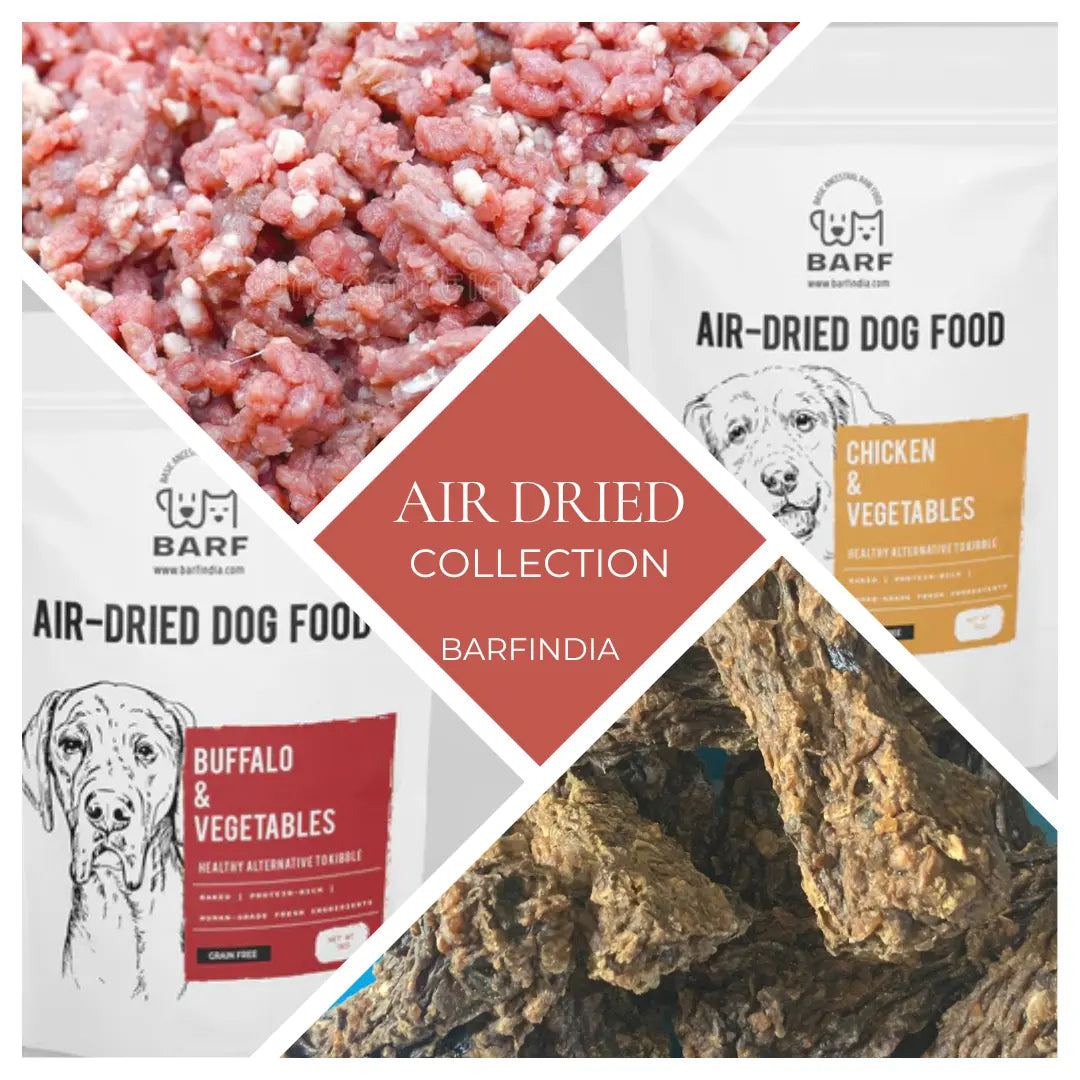
Fresh Breath, Happy Pup: How Bones Play a Vital Role in Oral Care for Dogs
Nivedita FernandesBones and Oral Care: The Secret to Your Dog’s Fresh Breath
Introduction:
Dogs are more than just pets; they are members of our families. We want the best for them, including their health and happiness. Oral care is a crucial aspect of overall health in dogs, yet it's often overlooked by pet owners. Just like humans, dogs can suffer from dental issues such as plaque buildup, gum disease, and bad breath. Fortunately, there are natural solutions to promote oral hygiene in our furry friends, and one such solution is bones. In this blog post, we will explore how bones can contribute to fresher breath and a happier pup by aiding in oral care for dogs.
Understanding the Importance of Oral Care for Dogs:
Before diving into the role of bones in oral care for dogs, let's first understand why oral care is essential for our canine companions. Poor oral hygiene can lead to various health issues in dogs, including:
- Plaque and Tartar Buildup: Just like in humans, plaque and tartar can accumulate on a dog's teeth, leading to dental problems such as tooth decay and gum disease.
- Gum Disease: Periodontal disease is a common issue in dogs, characterized by inflammation of the gums, bleeding, and tooth loss.
- Bad Breath: Halitosis, or bad breath, is often a sign of underlying dental issues in dogs and can be quite unpleasant for both the pet and the owner.
- Systemic Health Problems: Dental problems in dogs can also affect their overall health, potentially leading to issues with the heart, liver, and kidneys.
Given these potential complications, maintaining good oral hygiene in dogs is vital for their well-being and longevity.
The Role of Bones in Oral Care for Dogs:
Now, let's explore how bones can play a vital role in promoting oral health and fresh breath in dogs:
- Natural Teeth Cleaning: Chewing on bones helps to scrape away plaque and tartar buildup from a dog's teeth. The abrasive action of chewing helps to remove food particles and bacteria, reducing the risk of dental issues.
- Strengthening Gums: Gnawing on bones can also help strengthen a dog's gums by promoting blood flow to the area. Stronger gums are less prone to inflammation and infection, reducing the risk of gum disease.
- Freshening Breath: By removing plaque and tartar buildup, bones can help eliminate the underlying cause of bad breath in dogs. Additionally, the act of chewing on bones stimulates saliva production, which naturally cleanses the mouth and helps to freshen breath.
- Mental Stimulation: Chewing on bones provides mental stimulation for dogs, helping to alleviate boredom and reduce stress. This can be especially beneficial for dogs prone to anxiety or destructive behavior.
- Nutritional Benefits: Certain bones, such as raw bones, contain nutrients like calcium and phosphorus, which are essential for maintaining healthy teeth and bones in dogs.
Choosing the Right Bones for Your Dog:
Not all bones are created equal when it comes to oral care for dogs. It's essential to choose the right type of bones to ensure the safety and health of your furry friend. Here are some factors to consider when selecting bones for your dog:
- Size: Choose bones that are appropriate for your dog's size and chewing habits. Avoid giving small bones that could pose a choking hazard or large bones that are too hard for your dog to chew.
- Raw vs. Cooked: Raw bones are generally safer for dogs than cooked bones, as they are less likely to splinter and cause injury. Cooked bones can splinter easily and may cause digestive issues or oral injuries.
- Supervision: Always supervise your dog when giving them bones to chew on, especially if they are prone to aggressive chewing or have a history of dental problems.
- Veterinary Approval: Consult with your veterinarian before introducing bones into your dog's diet, especially if they have existing dental issues or dietary restrictions.
Incorporating Bones into Your Dog's Oral Care Routine:
Once you've selected the right bones for your dog, it's essential to incorporate them into their oral care routine effectively. Here are some tips for doing so:
- Offer bones regularly: Make bones a regular part of your dog's chewing routine to maintain good oral hygiene and fresh breath.
- Monitor chewing habits: Keep an eye on your dog's chewing habits and adjust the type or size of bones as needed to ensure their safety and comfort.
- Practice good hygiene: In addition to giving your dog bones, it's essential to practice good oral hygiene by brushing their teeth regularly and scheduling routine dental cleanings with your veterinarian.
- Be patient: Some dogs may take time to adjust to chewing on bones, especially if they are not used to them. Be patient and persistent, and gradually introduce bones into your dog's routine.
Conclusion:
In conclusion, bones can play a vital role in promoting oral care and fresh breath for dogs. By providing natural teeth cleaning, strengthening gums, and offering nutritional benefits, bones offer a holistic approach to maintaining good oral hygiene in our canine companions. However, it's essential to choose the right type of bones and incorporate them into your dog's oral care routine effectively. With proper supervision and veterinary guidance, bones can contribute to a happier, healthier pup with a bright, fresh smile.



